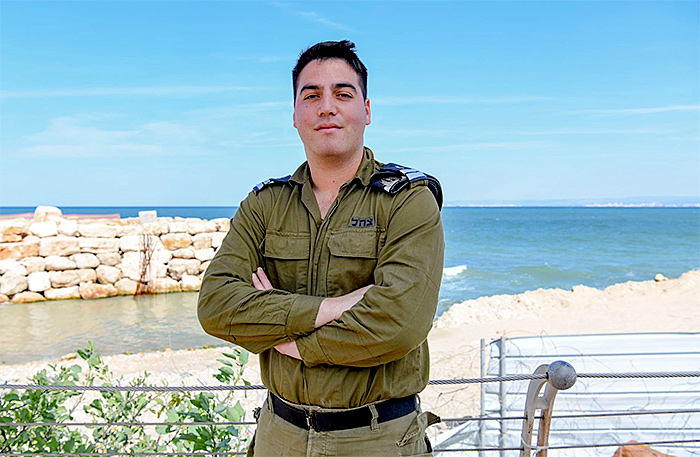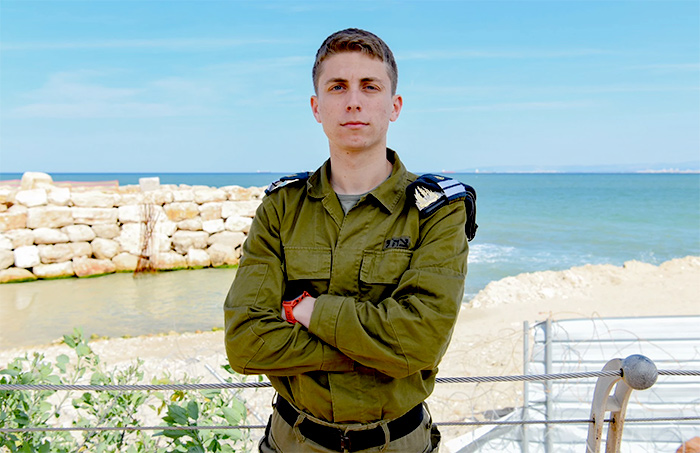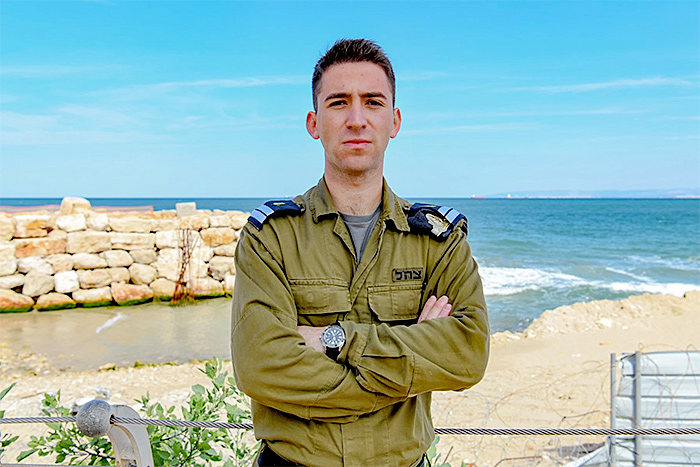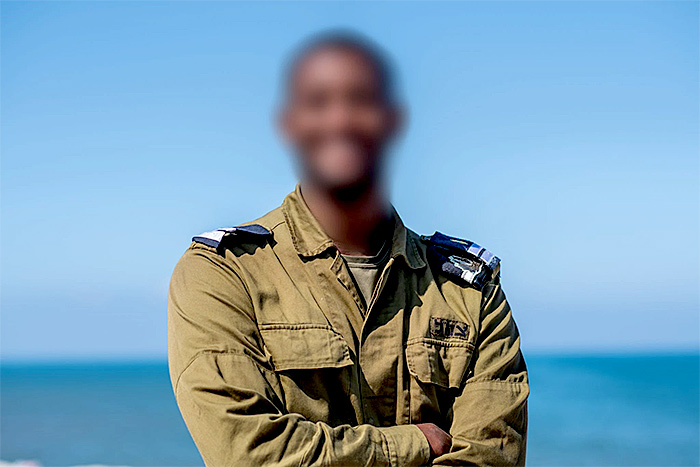At the end of two years and four months of sea, sweat and tears
After sailing through choppy waves and constant alertness for the hour of command - these cadets look forward impatiently to the action that awaits after the graduation ceremony.
For 5 months they have been fighting vigorously at different distances from Israel's shores, and today they finally earn the title of captain - the first since the beginning of the war.
We got to hear from 4 of them about the trends, the positions, and everything that can be told
When the cadets of Skipper 148 enlisted for the seaman's course sometime in October 2021, they did not imagine that they would experience commanding the various vessels in wartime - even before receiving their ranks.
Already in the first weeks of the war, they jumped into the battleships, steels and submarines, and continued their practical training in the middle of the sea, in operational missions of defending the country.
To understand their actions in depth (pun intended), we will go back, to the moment of division into trends. At the end of the formation of the crews, the cadets were sorted into three majors: electronics, sailing and machinery. A few of them are given the opportunity to further differentiate into another major - submarines, which designates them, of course, for service on one of the IDF's five submarines.
ELECTRONICS
"When I got to the major, the combination of warfare and technology and the use of advanced systems winked at me," says cadet Amir, from the electronics major.
The ship's electronics officer is called a "defense officer", and is responsible for protecting the ship against threats from the air, from the ground, and especially from missile fire. In addition, he is responsible for operation and techniques of all electronic and warfare systems on the ship.
"In the role of a defense watch officer, you are responsible for protecting the ship at any given moment. The first time my commander let me take a watch alone, in the middle of an operational mission during combat, I felt that I was really trusted," shares Cadet Amir, "that's what I was authorized to do. All the hours in the simulators , in pressure chambers and tests on land and at sea - are drained for this one moment."

MACHINERY
In the engine department, the officers are responsible for the technical aspect of the ship: operation of the propulsion systems, electricity and fuel, and damage control in case of fire or flooding.
"As an officer in the department, I need to know how to manipulate the team in the best way to remove threats, save lives and maintain operational competence," clarifies cadet Michael, from the machine learning program.
The officers in the department are required to know the systems on the ship like the back of their hand. "The ship I'm assigned to, the Sa'ar 6 series, has the most advanced machine. These are almost independent engines, and innovative control systems," he notes, "the studies are very challenging, but they proved themselves when we had to sail and carry out the mission."

SAILING
In the sailing course, the cadets are assigned to one of two positions at the end of the course: the first - weapons officers, who will deal with combat systems, anti-tank missiles, missiles and seafaring. The other - GNAK (navigation and communication) officers, who will deal with combat tactics, building operations and cooperation with different units in the army
"Before being assigned as a weapons officer or GNAK officer, you assume the basic role of a bridge watch officer, who is responsible for navigation and managing the ship's daily routine at sea. This is what every cadet in the sailing course did at the beginning of combat," explains cadet Itai, from the sailing course, "the first time in combat that my commander trusted me and let me take a shift by myself, I felt a tremendous meaning - to command the ship myself and an entire team of fighters."

SUBMARINES
The submarine course contains machine, weapons, GNK and sonar officers - the equivalent of officers from the electronics course. This is a separate course for a separate vessel, which deals with operations and operations different from BTS vessels and submarines. The officer in the machine department on a submarine, for example, will deal with completely different systems than on a ship missiles.
"In other vessels, the machine is passive, there is no element of activation," clarifies Cadet A, from the machine department in submarines, "In a submarine, we sit in the technical center. We are responsible for the steering, for starting the engine and for compensatory actions - if the submarine becomes lighter or heavier, We are responsible for keeping it stable. We are very active."
There are significant differences in the actions of the cadets in the various majors, but one thing that remains the same for all of them is their reaction on October 7th. "On that Shabbat we all felt that we had to do something," cadet Itai recalls, "when we were told that we were scattered to the tools, it gave us a feeling that it was possible to do all the important and essential things that we had trained for."
"I remember saying that as far as I'm concerned, I'll come and clean the deck or load food onto the ship, just to do something," joins Cadet Amir, "I closed Shabbat on October 7 and felt that I couldn't sit at the base in uniform, that I had to rush forward - as an officer, or as one of the fighters ".
Today, the ceremony that marks the end of their training will take place. When they are asked about their readiness for duty, they confidently answer: "The war has hardened us a lot. The last stage of the course is very intense, and combined with non-stop fighting, we face quite a challenge." They say that they accumulated many sea hours as well as operational experiences - not all of which can be discussed.
But despite the experience they have gained, they do not remain complacent. "Both the combat and the course prepare you well for the job, but they don't claim to make you do it properly - from the moment you arrive, it's on you," concludes cadet Michael, "the title 'soldier' is not enough - you have to come every day, and work hard , to be a trusted commander."
